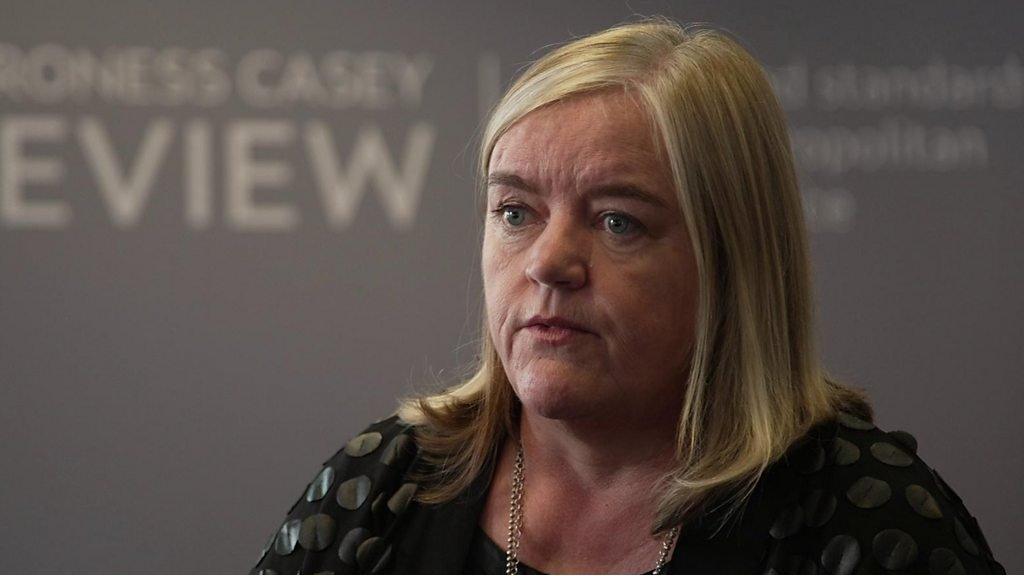Met Police: The 'dark corner' of the force where Wayne Couzens worked
- Published
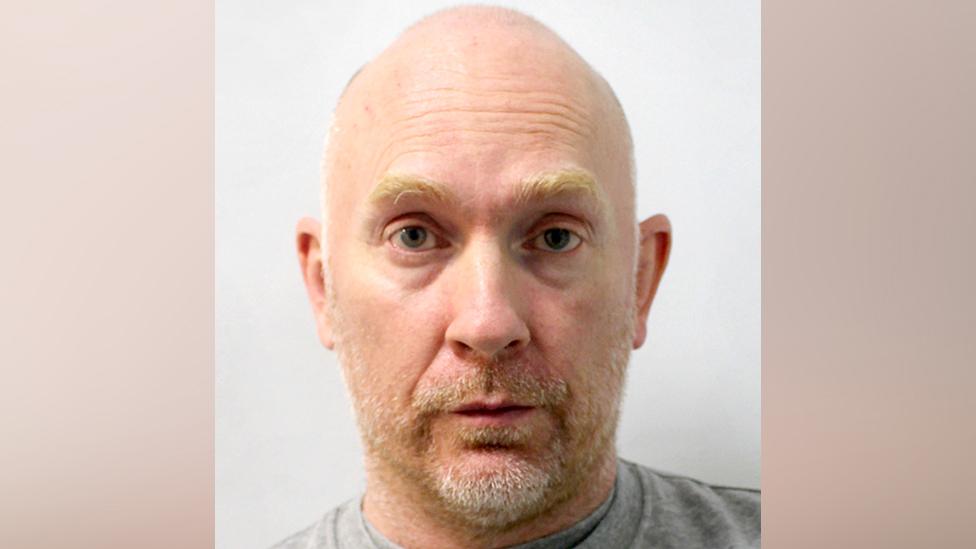
Wayne Couzens admitted murder, kidnap and rape
Among the many damning criticisms of the Metropolitan Police, two specialist units come under particularly searing scrutiny - including one where Wayne Couzens and David Carrick both worked.
The men were armed officers in the Parliamentary and Diplomatic Protection (PaDP) Command, a unit Baroness Louise Casey describes as a "dark corner" of the Met.
The other team she singles out is the Met's Specialist Firearms unit, known as MO19, a team where "normal rules do not seem to apply."
A whole chapter of the 363-page report, external highlights serious concerns, with the toxic cultures of bullying, racism and ableism, and elitist attitudes in the units.
Baroness Casey began her review of the Met after the abduction, rape and murder of Sarah Everard by Couzens, then a serving police officer.
While carrying out her inquiry, Carrick, another Met officer, was convicted of a series of rapes, sexual offences and torture of women.
Baroness Casey said their former unit was a "dark corner" of the force.
Made up of nearly 1,000 armed and unarmed officers, they are responsible for patrolling the Palace of Westminster, New Scotland Yard, Downing Street and embassies across London.
But Baroness Casey's review describes PaDP as having a bullying culture, a team where only 10% of officers and staff are female, 7% of which are female officers.
"Officers said low turnover of staff, boredom, lack of supervision and skewed demographics in the Command had led to a culture of inappropriate comments disguised as 'banter'," the report says.
"The lack of females there meant that men just came out with stuff that was quite offensive, and there was never any accountability because the Inspectors were not present."
It adds that many in PaDP thought they were seen in the Met as officers who had "failed to get into MO19".
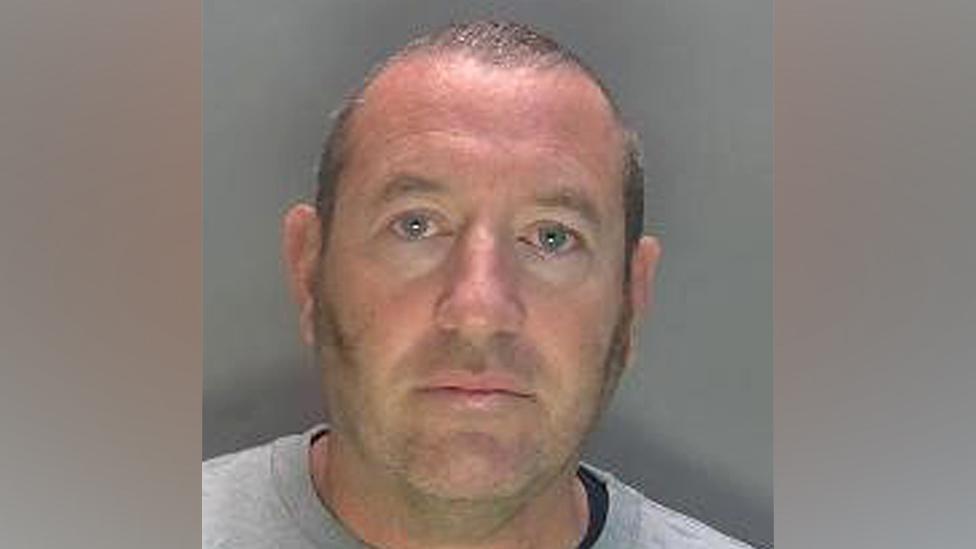
David Carrick admitted 24 counts of rape
Mention of the Met's Specialist Firearms unit, MO19, "usually elicited an eye roll from current and former Met officers and staff we spoke to," Baroness Casey said in her report.
The review painted a damning picture.
"It appeared to be well known what it was like there," it said. "But there was a sense that it either could not be challenged or that any attempt to would fail because of the overriding culture of the unit."
Officers and staff in MO19 are described as an "inner circle" and "clique" who have worked together for years. One officer described these networks as a "spider's web" influencing who gets promoted or handed prestigious jobs.
"There is a 'boys club' that looks after its own in the unit," said one respondent, adding: "There are power couples... this is one of the most insidious issues we have... they pass information around quicker than a radio."
Baroness Casey says when her review team visited MO19 they saw sexism in plain sight.
"Male officers frequently interrupted and spoke over female officers, including those more senior to them," she wrote.
"A male firearms officers openly expressed the view that women can "struggle sometimes with handling the weapons because of their physical size."
Watch: Baroness Casey on her blistering report of the Met police
Female officers also spoke openly about MO19 being a "men's department".
An internal survey of people who left MO19 between January 2019 and March 2022 found every female respondent and interviewee said they experienced sexual harassment, inappropriate comments and inadequate facilities.
"It's the most toxic, racist, sexist place I've ever worked…it's just an unbelievable place," said one respondent.
One female officer who gave testimony said she once asked at a training facility where the toilets were. She was "brushed off" by senior officers and told to "use the woods".
On another occasion a poster appeared in an MO19 common area which had been photoshopped to show a female firearms officer carrying mops, irons and kettles instead of weapons.
Another alarming finding said there is a tactic around the use of WhatsApp, Signal or Telegram messages when a group has become "compromised" - by way of a complaint about the group's contents or someone under a misconduct investigation.
'Landslide'
"We were told officers are taught to type 'LANDSLIDE' into the group. Officers will then immediately leave the group, delete its contents and create a new group under a new name."
Baroness Casey's team were told senior officers who had tried to challenge the culture within MO19 were "warned off" from making further complaints if they wanted to progress their careers.
While the findings are concerning, Baroness Casey makes clear that she and her team are indebted to the armed officers who work in one of the most challenging areas of policing.
At a moment's notice, she says they can be called upon to risk their lives to protect the public and some of London's most high-risk national landmarks.
However, Baroness Casey is clear that the culture and behaviours inside these two units need to be addressed urgently.
Sir Mark Rowley, the man tasked with overhauling the Met's culture, was in charge of several specialist armed units between 2011 and 2018 prior to his retirement. He rejoined the force in 2022 as commissioner.
Speaking to BBC Breakfast after the report was published, he said he made changes in his previous role "but clearly we didn't make enough progress". Sir Mark said Met leaders "all need to reflect on why we didn't see the depth of what was there".

Have you been affected by the issues in this story? Share your experiences by emailing haveyoursay@bbc.co.uk, external.
Please include a contact number if you are willing to speak to a BBC journalist. You can also get in touch in the following ways:
WhatsApp: +44 7756 165803
Tweet: @BBC_HaveYourSay, external
Please read our terms & conditions and privacy policy
If you are reading this page and can't see the form you will need to visit the mobile version of the BBC website to submit your question or comment or you can email us at HaveYourSay@bbc.co.uk, external. Please include your name, age and location with any submission.
Related topics
- Published21 March 2023
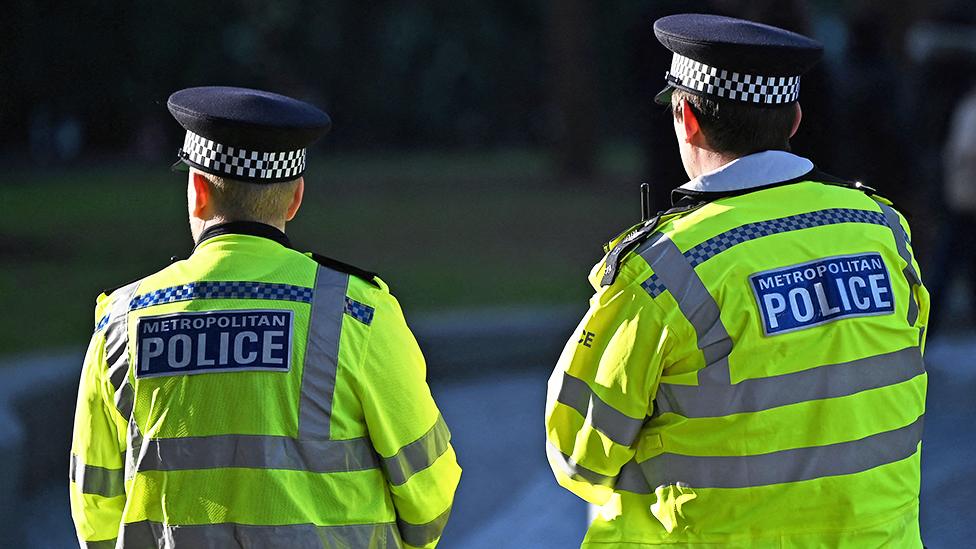
- Published21 March 2023
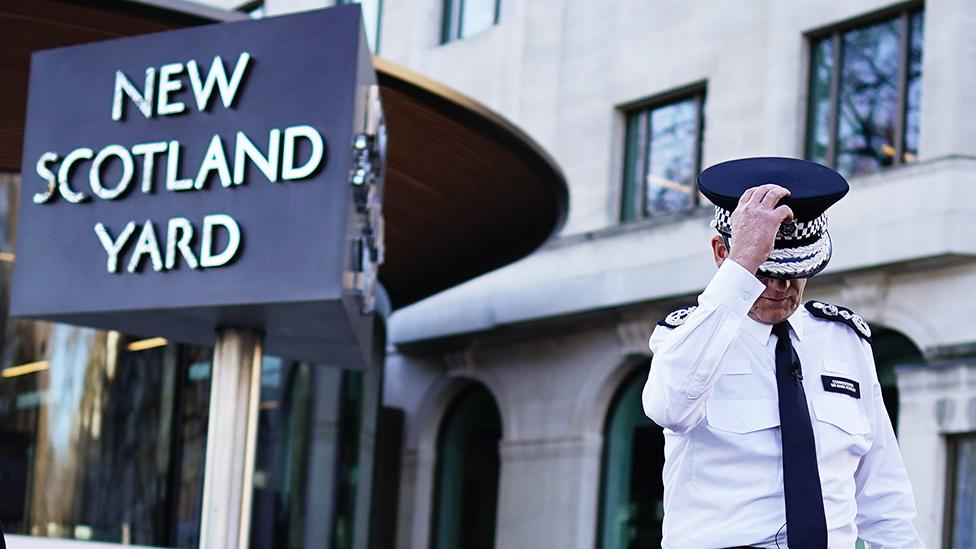
- Published20 March 2023
